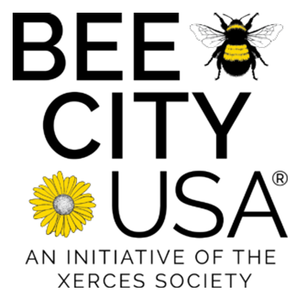
Already faculty, staff, and students have worked together to study and create pollinator habitats with native plants. Catawba Environmental Stewards, a group of students working on a variety of environmental initiatives, planned and implemented several native pollinator gardens on campus.
Catawba is currently working on its first Integrated Pest Management (IPM) plan which will be written and published over the next year. They also plan to continue to increase pollinator habitats across campus which will provide a more abundant food source for crucial species such as bats and birds.
Bee City USA and Bee Campus USA are initiatives of the Xerces Society for Invertebrate Conservation, a nonprofit organization based in Portland, Oregon, with offices across the country. Bee City USA’s mission is to galvanize communities and campuses to sustain pollinators by providing them with healthy habitats, rich in a variety of native plants, and free of pesticides. Pollinators like bumble bees, sweat bees, mason bees, honeybees, butterflies, moths, beetles, flies, hummingbirds, and many others are responsible for the reproduction of almost ninety percent of the world's flowering plant species and one in every three bites of food we consume.
“The program aspires to make people more PC—pollinator conscious, that is,” said Scott Hoffman Black, Xerces’ executive director. “If lots of individuals and communities begin planting native, pesticide-free flowering trees, shrubs, and perennials, it will help to sustain many, many species of pollinators.”
Catawba continues to build on its commitment to sustainability. They were the first college in the Southeast to be certified carbon neutral seven years ahead of their 2030 goal, and the first campus in the US to add Haven solar shelters to their campus. They were recently designated as a Tree Campus Higher Education by the Arbor Day Foundation. The campus is also home to a solar-powered trash compactor bin from CleanCUBE which holds up to five times more waste compared to traditional bins. Catawba added an electric vehicle (EV) charging station for visitors last fall and is in the process of adding additional charging stations. They also erected a solar sculpture created by Spotlight Solar. The college is completing work on a new geothermal system that will provide efficient and clean heating and cooling for the Corriher-Linn-Black Library. Catawba’s Ketner School of Business is also launching a new Sustainable Leadership MBA concentration in collaboration with the Center for the Environment and Hurley School of Arts and Sciences.
Additional information may also be found here:
